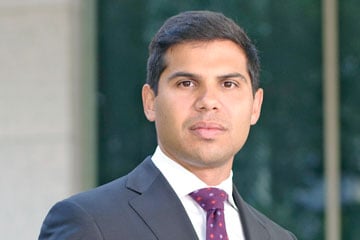
The province’s decision to alter a renewable energy program was not misfeasance of public office, a judge said, despite the failure of a small business involved in the program.

The province’s decision to alter a renewable energy program was not misfeasance of public office, a judge said, despite the failure of a small business involved in the program.
Lawyer David Elmaleh, a partner at McCague Borlack LLP, who represented Ontario Power Authority in the case, says the judge’s finding shows that the tort of misfeasance in public office is unique and a tough tort to establish.
“The detailed decision by the trial judge provides an excellent outline of the law in this tort and how it can be applied to matters that proceed to trial. As most reported decisions involving this tort are preliminary pleadings motions, this case may be particularly interesting to litigators,” says Elmaleh, one of three lawyers that represented the then-OPA.
The Feb. 25 decision, Capital Solar Power Corporation v. The Ontario Power Authority, 2019 ONSC 1137, was written by Justice Giovanna Toscano Roccamo of the Ontario Superior Court of Justice. The case centres on Capital Solar, a small business run by André Deschamps and Angela Monette that started to take advantage of province’s program, Roccamo wrote.
Although the business owners were not experienced in the renewable energy sector, they had a successful track record in business and planned to sell energy to homeowners, farmers and small businesses, taking advantage of “the stability that the program was intended to offer,” the decision said.
The province announced on Oct. 31, 2011 a new pricing schedule and rule changes effective after Aug.31, 2011, the decision said. After the October announcement, CSP’s business declined and ultimately closed in 2013, the judge wrote.
“André Deschamps and Angela Monette both garnered the Court’s sympathy. They presented as hardworking and earnest small business owners. Yet, they invested all the proceeds from the sale of their prior business to speculate in an unknown area of business. It is unfortunate that CSP failed. Nevertheless, it cannot be said that its failure was as a result of any actionable wrongdoing by the OPA,” the judge wrote.
Geoff Hall, a partner at McCarthy Tétrault LLP and one of the lawyers representing CSP, declined to comment.
Tom Timmins, a partner at Gowling WLG in Toronto and head of the global renewable energy law practice, says that the important element of the decision from a legal perspective will be whether something new has been established in terms of the government’s freedom to make policy.
“Larger companies might have more time and resources for government relations and be more aware of things. They might also have diversified risk by being in different jurisdictions. If there is a government change in one province, the project might get put on hold, and they’ll turn attention to another province or country,” says Timmins, who was not involved in the case. “Small mom and pops obviously don’t have that luxury.”